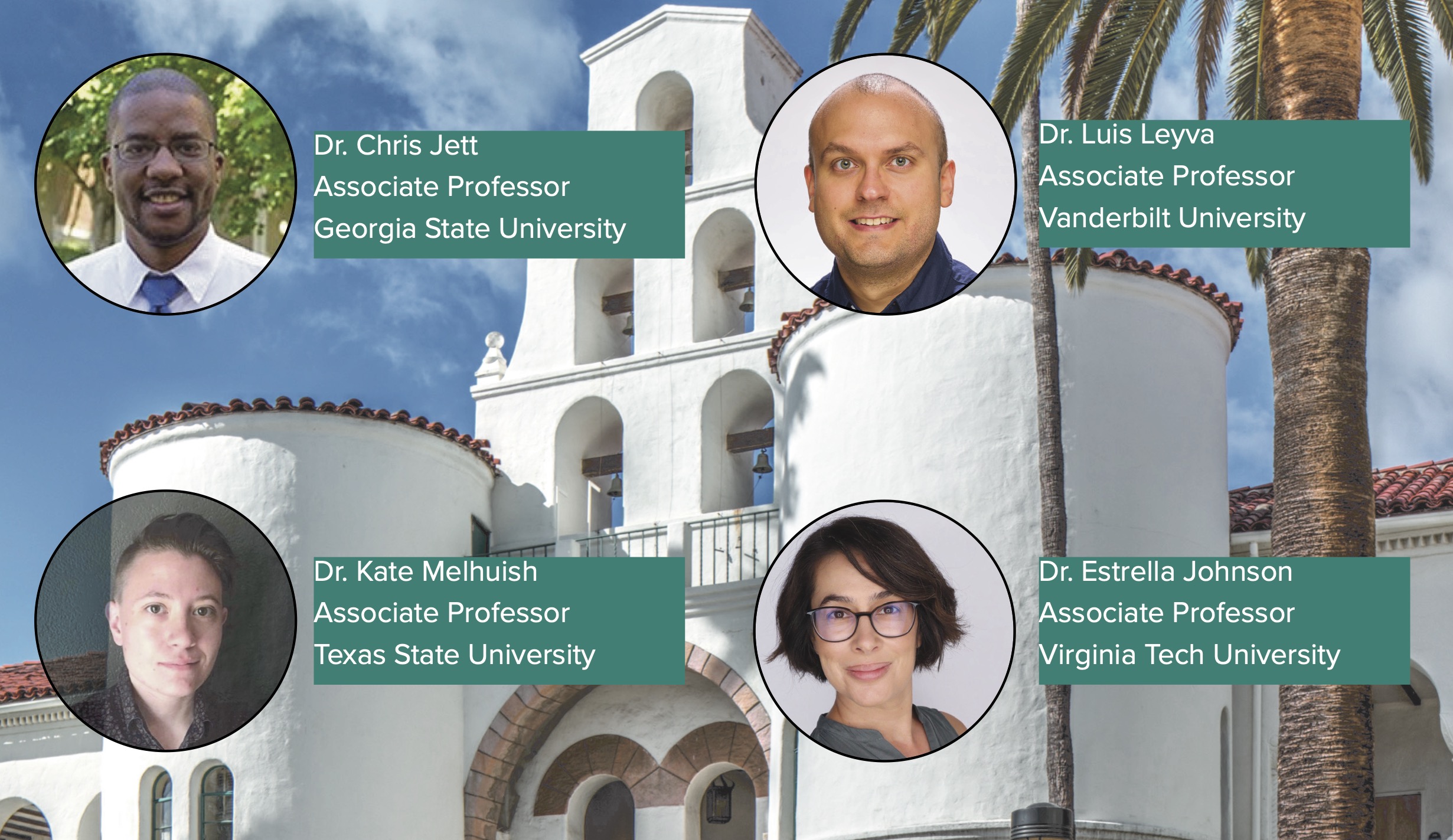Distinguished Lecturers Series
CRMSE's Distinguished Lecturers Series gives leading educators and researchers a forum to discuss key issues and emerging strategies in mathematics and science education. The series is designed to bring the science, education and business communities together to encourage conversations about the future of science and math education.
Past Distinguished Lecturers
Guest speakers: Chris Jett, Kate Melhuish, Luis Leyva, and Estrella Johnson. Expand the menu below to read their abstracts and bios.
Speaker Abstracts and Bios
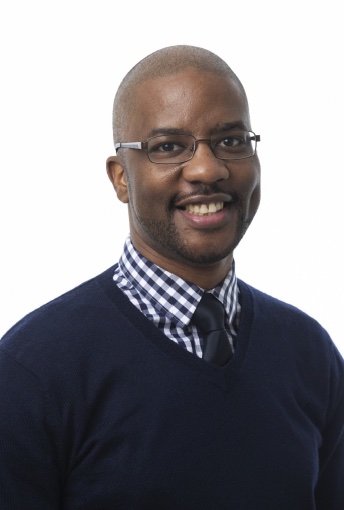
Abstract: There have been national calls to advance racial equity in mathematics. One way to do so is to broaden the participation of Black men in mathematics programs. My research agenda draws upon Black men’s assets to unearth their unique mathematical talents and highlight their mathematics success in undergraduate contexts.
Bio: Dr. Christopher C. Jett is an Associate Professor of Mathematics Education at Georgia State University. His research agenda examines Black male students’ mathematical and racialized experiences. As a scholar committed to racial equity, his work has been funded by the National Science Foundation (NSF), New Venture Fund, and the U.S. Department of Education. He received an NSF CAREER Award, the 2019 Early Career Award from the Association of Mathematics Teacher Educators (AMTE), and a Presidential Early Career Award for Scientists and Engineers (PECASE). He is the author of Black Male Success in Higher Education: How the Mathematical Brotherhood Empowers a Collegiate Community to Thrive.
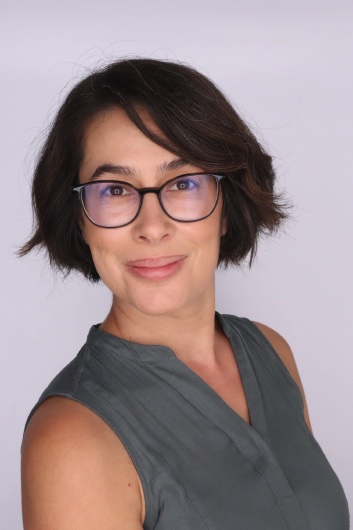
Abstract: What does “good teaching” look like? It is such a fundamental question, one firmly in the center of educational research’s purview. And indeed, as successive waves of research trends have passed through the discourse, we have produced successive waves of “good teaching” characterizations. But, have any of them been equitable?
Bio: Dr. Estrella Johnson started at Virginia Tech in 2013, after earning her PhD in Mathematics Education from Portland State University. Her research focuses on the pedagogical practices of mathematicians, with the goal of better understanding and supporting high quality, ambitious teaching in undergraduate mathematics classrooms. Her research and professional interests have since taken a turn towards issues of inclusion and diversity – both in the mathematics classroom and in the sciences more broadly. She is currently the Assistant Dean for Inclusion and Diversity for the College of Science.
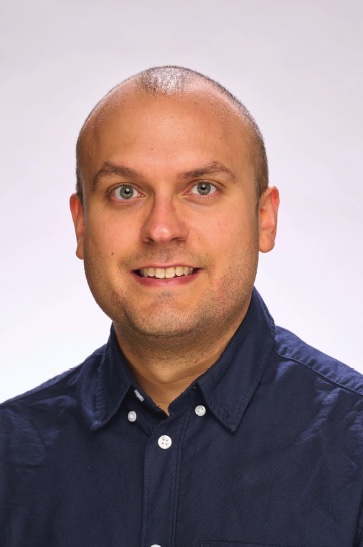
Abstract: This talk presents an analysis of undergraduate Black and Latin* students’ perceptions of calculus instruction that revealed how practices supportive for all learners do not guarantee equity. I highlight the practice of creating space for questions and mistakes, which is central in inquiry into student thinking, to illustrate this finding.
Bio: Dr. Luis Leyva is an Associate Professor of Mathematics Education and STEM Higher Education at Vanderbilt University. His interdisciplinary research examines and seeks to disrupt the influence of interlocking systems of power, including racism and cisheteropatriarchy, that shape classroom teaching, student support, and curricular design in undergraduate mathematics and STEM higher education broadly. As a scholar advancing intersectional justice across mathematical and scientific contexts, Leyva’s research centers narratives of oppression, agency, and support among undergraduate STEM students to uncover how educational practices limit and expand learning opportunities that affirm their identities across intersections of race, gender, and sexuality. He draws on critical race theory, women of color feminisms, and queer of color critique to ground his scholarship, both conceptually and methodologically. Leyva’s research has been supported by the Bill & Melinda Gates Foundation (Mindset Scholars Network), National Academy of Education/Spencer Foundation, and National Science Foundation.
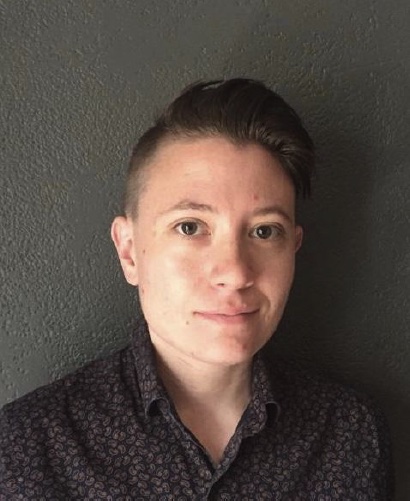
Abstract: Inquiry in undergraduate mathematics classrooms often hinges on engaging students in “disciplinary practices.” These practices have been developed and codified by a small group of privileged individuals. In this discussion, I will focus specifically on mathematical proof and the tensions created when taking a critical approach to proof-based courses.
Bio: Dr. Kate Melhuish is an Associate Professor of Mathematics at Texas State University. Their primary area of research is related to teaching, learning, and assessment in proof-based mathematics. They have worked on a number instrument development projects, studies of conceptual thinking in modern algebra, and projects aimed at promoting improving proof-based courses with attention to authentic activity and inclusive environments. Dr. Melhuish served as PI on three NSF grants and co-PI on three others.
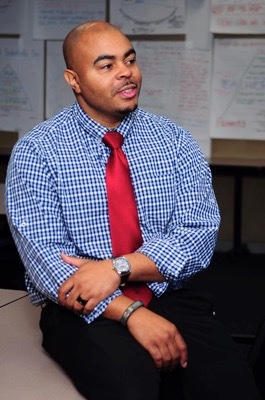
Abstract: This presentation explores how race, culture and language intersect to create the condition of contemporary learning. For years, research on the language of classrooms explored how the way we say things impacts students’ sense of belonging. Despite this research, Science and Technology Education have failed to adequately explore how issues of race, language, and culture shape the outcomes of teaching and learning in science. Through a sequence of research, this presentation explores the theoretical and pragmatic aspects of this dilemma. From a theoretical perspective, the talk explores the Language-Identity dilemma. As students learn, the way academic language is taught to them can present a cognitive and cultural conflict. From a cognitive perspective, if science is taught without respect for the implications of how language is learned, students can be misunderstood and misunderstand the teacher’s complex discourse. From a cultural conflict perspective, students may feel they are cultural outsiders when the language of the classroom positions them as outsiders. The presentation provides an overview of a series of qualitative and quantitative experiments that document the realities of this complex interaction.
Bryan A. Brown is an associate professor of science education at the Graduate School of Education at Stanford University. From 2014-2018 he served as the Associate Dean for Student Affairs in the graduate school. He joined Stanford University in the 2004 after working on a post-doctoral fellowship at Michigan State University. His award-winning research focuses on improving urban science education. He focuses on exploring how language and identity impact urban students’ learning. Dr. Brown is a former high school science teacher who earned a Bachelor’s degree in Biological Sciences from Hampton University, a Master’s degree in Educational Psychology from the University of California, and a Ph.D. in Educational Psychology from the University of California, Santa Barbara. His 2009 research project on “Disaggregating Science Instruction” was awarded the Journal of Research in Science Teaching’s award as the top research manuscript of 2009. He was the 2007 winner of the National Association for Research in Science Education’s (N.A.R.S.T.) award for outstanding early career scholarship. His was named as a prestigious National Academy of Education and Spencer Foundation Fellow for 2005. In 2011, he received tenure at Stanford University in recognition of his research work. Dr. Brown’s research in urban schools examines how urban science education has underserved minority students by its failure to design instruction that is sensitive to the language and cultural needs of urban populations. His early research projects lead to the development of an instructional approach, known as Disaggregate Teaching, that is designed to improve learning for underserved populations. He continued that research by examining how the language the similarities, or Conceptual Continuities, between students’ informal language and those valued by science have great potential for improved learning. Currently, Dr. Brown leads the Science In The City Research Group. This research group examines how technology can serve as a mediator between a monolingual and monocultral teaching force and the multilingual and multicultural student population.

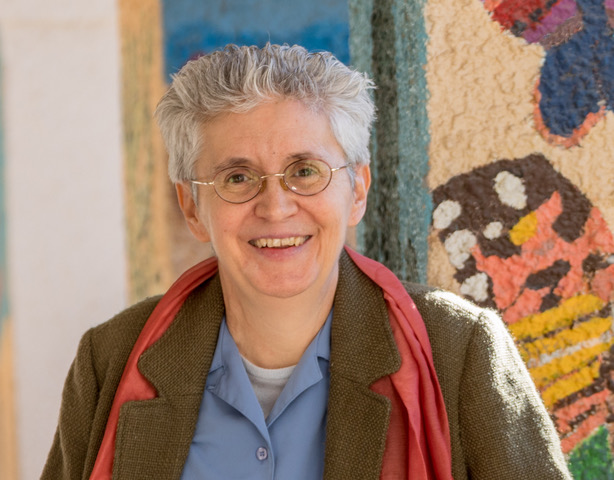
Abstract: I have been working on a research agenda grounded on the concept of Funds of Knowledge for about thirty years! In the initial stages of my work, the focus was on teachers learning from parents and family members to then inform their classroom teaching. In later projects, my focus became parental engagement in mathematics, where I sought to learn FROM and WITH the parents. This led to the idea of parents as intellectual resources for the teaching and learning of mathematics. Through what we call tertulias matemáticas (mathematical circles), we engage in a dialogue with parents to examine their own experiences as well as their children’s experiences with school mathematics. I discuss parents’ perceptions about the teaching and learning of mathematics, issues of valorization of knowledge, aspects of language and mathematics, and implications for research and teacher education. While the focus of my work has largely been at the K-12 level, more recently I have been looking at possible applications of this work at the college level.
Marta Civil is a Professor of Mathematics Education and the Roy F. Graesser Chair in the Department of Mathematics at The University of Arizona. Her research looks at cultural, social, and language aspects in the teaching and learning of mathematics; participation in the mathematics classroom; connections between in-school and out-of-school mathematics; and parental engagement in mathematics. She has led multiple funded projects working with children, parents, and teachers, primarily in Mexican American communities. Her research is grounded on the concepts of funds of knowledge and parents as intellectual resources, with a focus on developing culturally sustaining learning environments in mathematics education. Her current work includes a collaboration with two other universities focused on the development of a mathematical partnership that engages teachers, parents, and multilingual children in grades 3-5 in underserved communities. She is also exploring how to apply lessons learned from her work in equity in K-12 settings to entry level college mathematics teaching and learning.
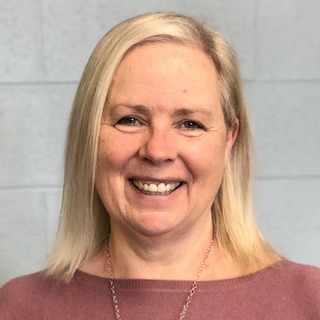
Abstract: There is a growing body of work from the learning sciences providing us with insights into how people learn; and from Discipline Based Education Research (DBER) we know what discipline-specific difficulties students face. However, it is quite surprising that relatively little of this understanding has made its way into the design of science and engineering curricula offered at most colleges and universities.
This presentation will focus on the need for evidence-based curriculum transformations, the research findings that can guide them and how we might assess the results of these transformations. An approach to systemic reform that focuses on core ideas, scientific practices and cross-cutting concepts, will be discussed. Examples of such curriculum reform efforts “Chemistry, Life, the Universe and Everything” (CLUE) and the subsequent organic chemistry version (OCLUE), will be presented, along with the evidence to support such transformations.
Dr. Melanie Cooper is a Lappan-Phillips Professor of Science Education in the Department of Chemistry at Michigan State University.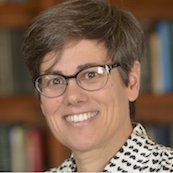
Abstract: This session explores how attending to the details and partial understandings of children’s thinking can enable teachers to engage students in learning together in ways that make use of the variety of resources that each student brings. We explore how attending to partial understandings can help us challenge our assumptions, as well as what it looks like in classrooms to make use of the understandings students bring and leverage all forms of participation to support each student’s learning.
Megan Franke is a Professor of Education at the University of California, Los Angeles. Dr. Franke’s research focuses on understanding and supporting teacher learning for both preservice and inservice teachers. She studies how teachers making use of research based information about the development of children’s mathematical thinking support students to learn mathematics. She is particularly interested in how teaching mathematics with attention to students’ mathematical thinking (Cognitively Guided Instruction) can challenge existing school structures and create opportunities for economically marginalized students and students of color to learn mathematics with understanding. She has been engaged in a series of studies with Dr. Webb that link classroom practice and student outcomes in elementary mathematics classrooms. She is a member of DREME (Development and Research in Early Mathematics Education) where she is working on a study of prek-2 coherence and the design of resources for early childhood teacher educators. Her research work to support teachers, schools and communities was recognized with the AERA Research into Practice Award and she was elected to the National Academy of Education.
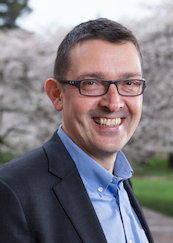
Abstract: The new vision provided in the NRC Framework for K-12 Science Education and the resulting Next Generation Science Standards provide a collective opportunity to broadly promote equity and social justice in education. These policy documents highlight that learning is fundamentally a cultural as well as a cognitive process—and that science learning experiences should be designed to overlap with the lives of youth and their communities in order to heighten meaning and relevance. I will highlight how building capacity and tools to support these shifts can be approached through sustained research-practice-community partnerships focused on identifying shared aims and improvement strategies to engage problems of educational practice. I will share multiple project examples to illuminate this strategy and associated research findings.
Philip Bell is a professor of the Learning Sciences & Human Development and holds the Shauna C. Larson Chair in Learning Sciences. He is executive director of the UW Institute for Science & Math Education focused on equity-focused innovation in K-12 STEM education, and he is co-director of the Learning in Informal and Formal Environments (LIFE) Science of Learning Center. Bell pursues a cognitive and cultural program of research across diverse environments focused on how people learn in ways that are personally consequential to them. He has studied everyday expertise and cognition in science and health, the design and use of novel learning technologies in science classrooms, youth argumentation, culturally expansive science instruction, and scaled implementation of educational improvement. Bell served as a member of the Board on Science Education with the National Academy of Sciences for eight years, co-chaired the National Research Council consensus report effort on Learning Science in Informal Environments and served on the committee of the NRC Framework for K-12 Science Education that was used to guide development of Next Generation Science Standards. He has a background in human cognition and development, science education, computer science, and electrical engineering. Bell is also currently editing a series of research- and practice-based tools for science education called STEM Teaching Tools. The effort is providing resources for equity-focused improvements in science education.
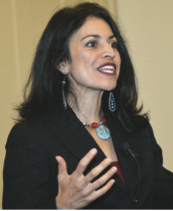
Abstract: Most teachers strive to make a positive impact on all of their students, but schooling contexts can change that. High stakes testing, Response to Intervention initiatives, Race to the Top campaigns, Common Core State Standards, new teacher evaluation systems, and the latest packaged reforms can keep teachers from acting on what is in the best interest of students and their learning. Even when teachers do not agree with a school policy or they face colleagues who hold low expectations for students, they may not feel prepared to take a stand. After all, most teacher education programs do not focus on preparing their graduates for the politics of school contexts or knowing how to strategically take risks in their teaching. So, what might the work of teaching look like if teachers had professional development in the area of the politics of teaching? How might they view their roles as teachers and what actions might they take?
With funding from the National Science Foundation, I have been working with a group of teachers over the past 6 years to develop their political knowledge and their propensity to take risks on behalf of their students. These teachers advocate for their historically marginalized students (students who are Black, Latin@, emergent bilinguals, recent immigrants, etc.) to learn rigorous, creative, and meaningful mathematics and to develop more robust mathematical identities. I will report on the politics of teaching mathematics; the ways in which these teachers view the profession and their roles within it; as well as how they interact with colleagues, administrators, and others so that they are successful in advocating for youth and themselves.
Dr. Rochelle Gutiérrez is a Professor of Mathematics Education in the Department of Curriculum & Instructions, Latina/Latino Studies, at the University of Illinois at Urbana-Champaign.
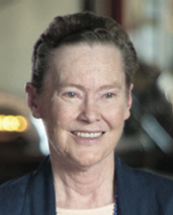
Abstract: Dr. Quinn talked about how the NGSS- oriented science classroom is rich in experiences with phenomena and in student-to-student discourse. These are exactly the conditions needed for language learning. Hence with appropriate teacher attention to inclusion and language demands the science classroom is an ideal venue for supporting language development.
Dr. Helen Quinn is an Emerita Professor of Physics at Stanford Linear Accelerator Center, a member of the National Academy of Sciences, and Chair of the science workgroup at Stanford’s Understanding Language project.
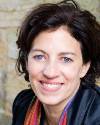
Abstract: In recent years scientific studies have demonstrated that student and teacher ‘mindsets’ have a profound impact on learning. Students with a ‘growth mindset’ (Dweck, 2006) who believe that intelligence and ‘smartness’ can be learned and that the brain can grow from exercise learn more effectively, displaying a desire for challenge and showing resilience in the face of failure. Such behaviors encourage greater math persistence, engagement and high achievement. Mathematics teachers play a critical role in the development of mindsets and this session will review the ways to teach for a growth mindset, including attention to classroom norms, math tasks, questions and assessment.
In this session Jo highlighted some of the work she has been doing around mindset, mathematics and the promotion of equity, and engaged everybody in thinking about ways to take the work forward.
Dr. Jo Boaler is a Professor of Mathematics Education at Stanford University and founder of youcubed. Former roles have included being the Marie Curie Professor of Mathematics Education at the University of Sussex, England, a mathematics teacher in London comprehensive schools and a lecturer and researcher at King’s College, London. She is the editor of the Research Commentary Section of The Journal for Research in Mathematics Education (JRME), and the author of seven books including What’s Math Got To Do With It?(2009) Penguin, US, and The Elephant in the Classroom (2010) Souvenir Press, UK. She is the author of the first MOOC on mathematics learning for teachers and parents, a White House presenter and an advisor to the PISA team at the OECD.

